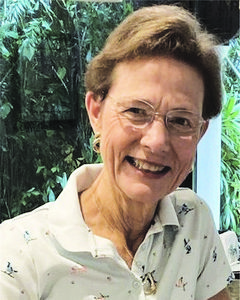|
Getting your Trinity Audio player ready...
|

Nine months and counting, of pandemic-style living. That’s more than one third of my little 21-month-old granddaughter’s life. Though she may not yet have a large vocabulary, she has mastered the elbow bump. “Firsts” keep coming. We just had our first COVID-19-Halloween; Thanksgiving is next.
I remember back to when I visited museums and concert halls filled with people; I loved the energy of a busy restaurant and the loud din of animated conversation competing with music. I booked flights with ease to see family members. I hugged my friends. No more.
BP—Before Pandemic, that is—is in the past. The term new normal is part of our everyday lexicon as we contemplate life AP: After Pandemic. We trust that we will emerge somehow…yet there is a pit in our stomach when we consider the uncertainty. What life will be like.
The past no longer seems like prologue.
In his now-classic book Transitions, first published in 1980, William Bridges outlines three stages of a successful transition. He points out that transitions begin with an ending.
Something that was, is no longer. The next is the neutral zone, an in-between period often characterized by emptiness, yet also, it can be one of introspection and reorientation. Finally, there is a new beginning as we launch once more, paying attention to the outer and inner signs pointing the way forward.
In our world of nanotechnology and high-speed internet, instant information and rapid-fire airing of opinions, our tendency is to want answers immediately. We rush through transitions. Once something ends, we want the next thing to begin. Now. Yet this strategy often doesn’t work well in the long run. Why, the virus itself provides a case in point: rushing through the process only seems to undermine any containment progress achieved.
As we face each day of pandemic-style living, I encourage you to consider it through the lens of the neutral zone. Think of this as a period in-between. Use it as a productive time to reflect: what is there to learn from the past? What, for example, needed to end, whether that might be inattentiveness to environmental perils or unjust systems? What assumptions, or what choices, needed to be let go of? Further, now that you are in this neutral space, what are you learning about what you most value? How can life, once a new beginning comes into view, integrate those values more effectively? What do you want to do differently? Through personal introspection and talking to trusted people in your life, you can embrace this in-between time as an opportunity to prepare for the new normal.
Then, your beginning—whenever that can happen—will be enhanced by what you learned from your ending, and how you planned for the next chapter.
Kathryn Carroll offers one-on-one coaching, listening and support for individuals facing transitions and dilemmas. Learn more by visiting www.conversationswithkatie.org or emailing her at conversationswithkatie@gmail.com.





